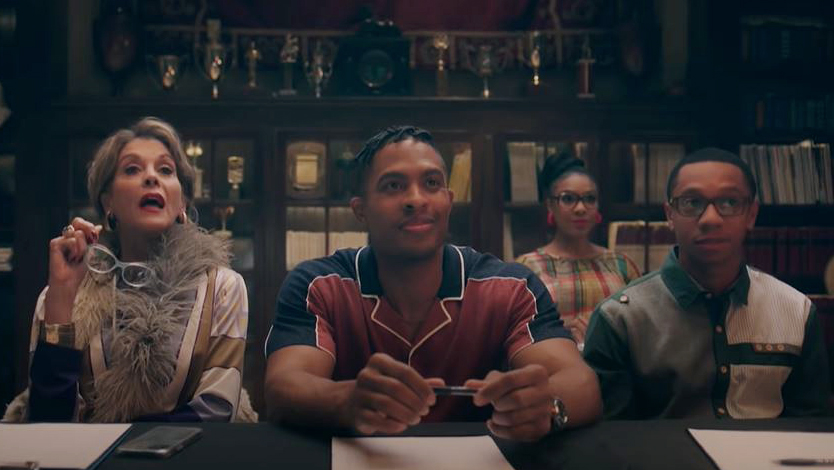After two years of waiting for the fourth season of Netflix’s Dear White People, it’s finally here. And it was OK.
The fourth season was released Wednesday and follows the Black students of fictional Winchester University as they prepare to perform at the “Varsity Show.”
Director Justin Simien’s efforts from previous seasons to tackle racial issues and depict the diverse viewpoints of the Black community continued — but this time, it was presented as a musical. Although I like the show’s creativity and honesty, the final season lacks the quality of its past.
What I find works in Dear White People is its characters. Every episode is generally focused on the perspective of a specific character. Simien’s direction in this aspect is engaging because watchers really get to know each of the main characters and see the events from different points of view. Whether it’s Lionel’s relationship problems or Troy’s conflict with his mother, a lot happens in 10 episodes, and it all seems to work.
[Review: ‘Star Wars: Visions’ has everything a Star Wars fan could want]
Alongside its characters, the themes of discrimination and fighting for what’s right are handled quite well. Through multiple character storylines, we get to see the complicated matter of staying true to your values. For example, Gabe, a white character dating Black activist Samantha, has to decide between filming a religious, conservative movie to make some money or taking his girlfriend’s advice of creating a film he loves. Subject matter such as this is what I think makes Dear White People so good.
The biggest problem of the show lies in its choice to be a musical. While I like the ’90s songs they use and the actors’ performances aren’t bad, the incorporation of music doesn’t feel thought-out.
The most memorable and well-written scenes are those without singing, such as the electrifying arguments between Samantha and Iesha or Reggie’s conversation about gun ownership with Joelle during the lockdown. When there’s a song, it can sometimes feel like a distraction from the emotion of the scene and the story as a whole.
Another problem I had with this season was that its setting no longer felt real. Despite Winchester University never being a real school in the first place, it felt real in earlier seasons because the students faced topical issues.
[Netflix dropped a bunch of film trailers. Here’s what to expect.]
Yet, the new season never truly acknowledges the coronavirus pandemic, even though they reference Beyoncé’s Black is King from July 2020. The show never addressed why the students don’t have to wear masks or social distance. The only time a pandemic is mentioned is during the frame story set in “the future.”
By never discussing the pandemic meaningfully, Dear White People fails to talk about current issues Black people are facing at this time. At the moment, the show feels like it takes place in a world where Black communities aren’t affected by a deadly disease, politicians don’t debate whether masks or vaccines work and an insurrection never happened at the Capitol. Instead of tackling these topics, the new season focuses on ’90s nostalgia.
Though flawed, the final season is still fun and even empowering, and as a Black student myself, I believe it’s still relatable. Dear White People is not a perfect show, but the message it sends remains important.



